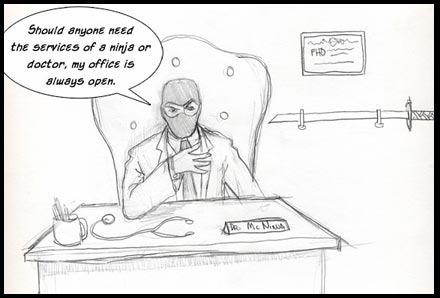U is for Universal Scientists
 Back when I was applying to my postgrad, my biggest academic anxiety was my lackluster grades in intermediate chemistry and physics. When I voiced my concerns to my prospective postgrad advisor, he was entirely unconcerned.
Back when I was applying to my postgrad, my biggest academic anxiety was my lackluster grades in intermediate chemistry and physics. When I voiced my concerns to my prospective postgrad advisor, he was entirely unconcerned.'Don't worry,' he said. 'It's not like you're going to need it again.'
Even as someone doing an interdisciplinary thesis, it turned out, I had already specialised my way out of any number of fields.
You wouldn't guess that, though, by looking at fictional scientists. Anyone behind a fictional lab coat can suture an artery, whip up a vaccine, split an atom, identify a rare species of rainforest bat, build a battery, calculate a Bayesian probability model to predict the age of the villain, and then take said villain down with a contraption made of rubber bands, frozen fish, and an antique lightbulb.
Back in the 16th and 17th centuries, it was much more feasible for a single person to know all there was to know about 'natural philosophy', since the sum total of human scientific knowledge was pretty limited. Once the rate of scientific discoveries really began to pick up, however, there was simply too much knowledge for one human to know it all. Now, when the rate of new discoveries in some fields-- particularly genetics and cellular biology-- necessitates new textbooks being printed annually, it's hard enough to keep up with the cutting edge of one field, let alone many. So while your fictional modern scientist may have a solid comprehension of fields outside their specialty, they will have tip-top skills only in their area of expertise.
Published on April 24, 2014 01:20
No comments have been added yet.



